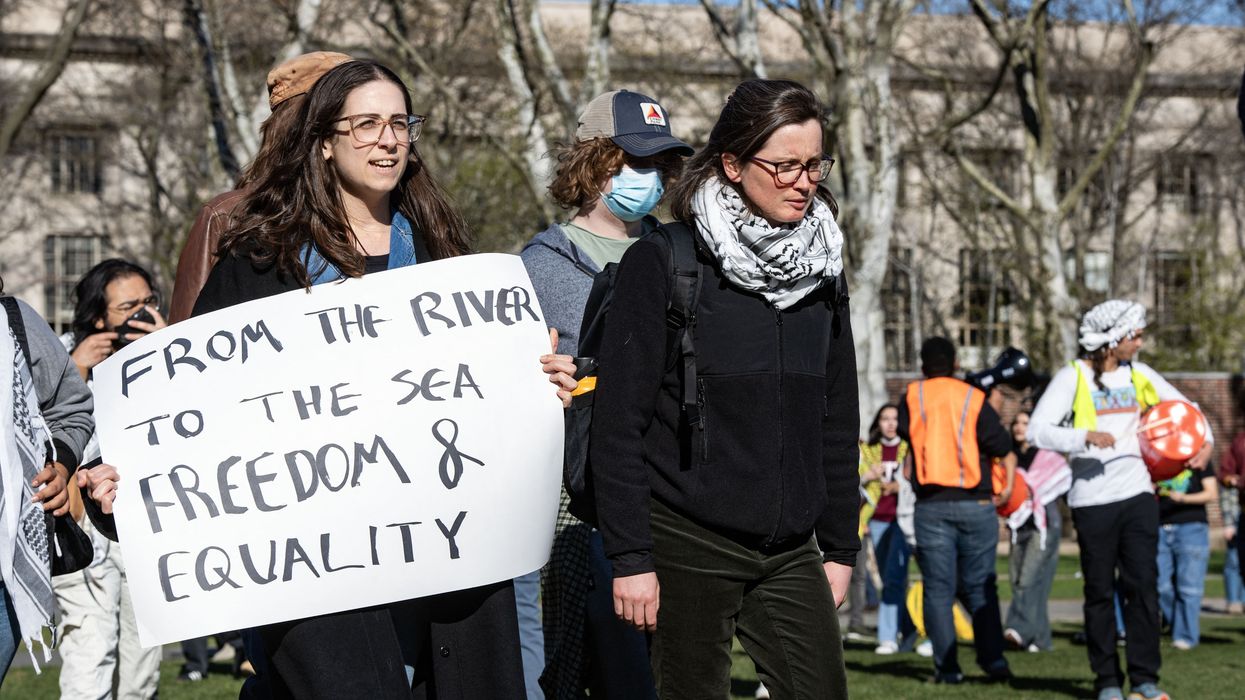The US State Department suspended processing of student visas on Tuesday, as president Donald Trump’s administration sought tighter control over universities by cutting funding and restricting international enrollment.
The suspension comes after earlier moves by the White House to revoke visas and deport some foreign students who joined protests against the war in Gaza.
A cable signed by secretary of state Marco Rubio and seen by AFP instructs embassies and consulates to halt “any additional student or exchange visa... appointment capacity until further guidance is issued.”
The cable said the government would step up checks of the social media profiles of international applicants to US universities.
The New York Times reported that the suspension of interviews with visa applicants was temporary.
Rubio had earlier rescinded hundreds of visas, and the administration has taken steps to stop Harvard University from admitting non-American students.
Japan and Hong Kong have both asked their universities to take in foreign students affected by the US decision.
China’s foreign ministry spokeswoman Mao Ning said on Wednesday that Beijing called on Washington to “safeguard the legitimate rights and interests of international students, including those from China.”
Many Chinese students attend US universities, which are widely seen in China as important centres of learning.
Protests at Harvard
The suspension of visa processing coincided with protests by Harvard students on Tuesday. The protests followed an announcement by the government to cancel all remaining financial contracts with the university.
A judge has issued a restraining order ahead of a hearing set for Thursday, the same day as Harvard’s commencement graduation ceremony in Cambridge, Massachusetts.
The White House has said it wants to direct public funds to vocational schools.
“The president is more interested in giving that taxpayer money to trade schools and programs and state schools where they are promoting American values, but most importantly, educating the next generation based on skills that we need in our economy and our society,” Karoline Leavitt said on Fox News Tuesday evening. “We need more of those in our country, and less LGBTQ graduate majors from Harvard University.”
Tuesday’s protest took place as news helicopters flew overhead and graduating students and their families gathered at a reception in Harvard Square.
“All my international friends and peers and professors and researchers are at risk and (are) threatened with being deported -- or their option is to transfer” to another university, said Alice Goyer, who joined the protest in a black academic gown.
A British student graduating this week, who gave his name only as Jack, said the Trump administration’s policies would make US universities less appealing to international students.
“I don’t know if I’d pursue a PhD here, six years is a long time,” he said.
Harvard has launched legal challenges to Trump’s measures, which legal experts expect to be overturned by the courts.
Separately, alumni plan to file a lawsuit against Trump on June 9, filmmaker Anurima Bhargava told a virtual meeting held by Crimson Courage, a grassroots alumni group raising funds for the legal challenge.
‘American values’
The government announced Tuesday that the contract cuts with Harvard would be worth an estimated $100 million, cutting business ties with the country’s oldest university.
Trump has accused universities of having a liberal bias and has singled out Harvard. In recent weeks, federal grants to Harvard have been frozen and federal contracts worth millions of dollars have been cancelled.
The university has sued to stop the revocation of its right to sponsor foreign students, who make up 27 per cent of its student body, and to reverse the loss of federal funding.
A legal expert said Harvard could add the latest contract cuts to its existing lawsuit.
“The case is so strong that the court system is not going to step to the side and allow this... to go forward,” said Ray Brescia, a professor at Albany Law School.
He said the courts would likely overturn Trump’s measures if they were appealed.
On Monday, Trump said he would continue to fight the university’s challenges, claiming that foreign students at Harvard included “radicalised lunatics, troublemakers.”
(With inputs from agencies)





